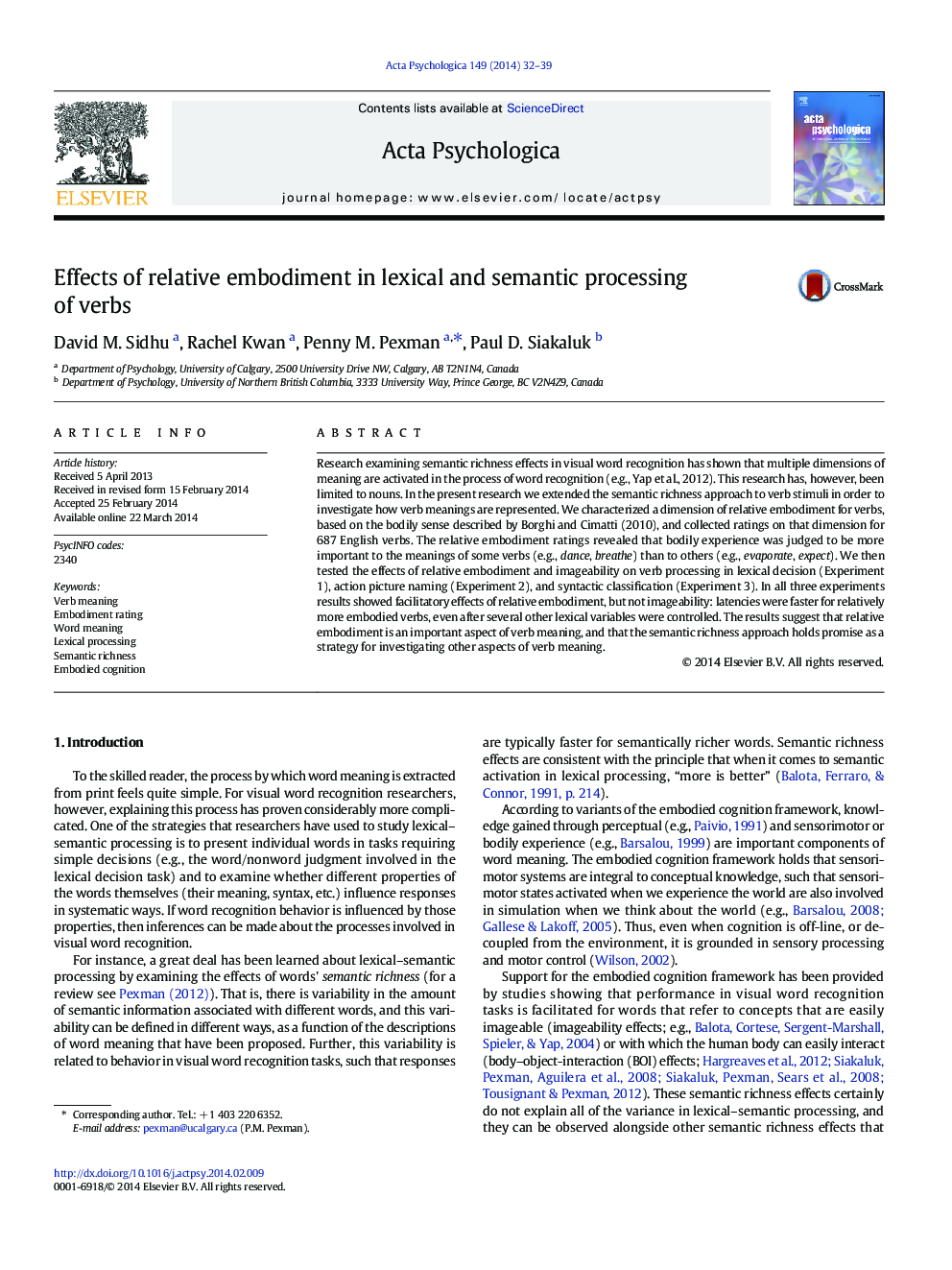| Article ID | Journal | Published Year | Pages | File Type |
|---|---|---|---|---|
| 7277645 | Acta Psychologica | 2014 | 8 Pages |
Abstract
Research examining semantic richness effects in visual word recognition has shown that multiple dimensions of meaning are activated in the process of word recognition (e.g., Yap et al., 2012). This research has, however, been limited to nouns. In the present research we extended the semantic richness approach to verb stimuli in order to investigate how verb meanings are represented. We characterized a dimension of relative embodiment for verbs, based on the bodily sense described by Borghi and Cimatti (2010), and collected ratings on that dimension for 687 English verbs. The relative embodiment ratings revealed that bodily experience was judged to be more important to the meanings of some verbs (e.g., dance, breathe) than to others (e.g., evaporate, expect). We then tested the effects of relative embodiment and imageability on verb processing in lexical decision (Experiment 1), action picture naming (Experiment 2), and syntactic classification (Experiment 3). In all three experiments results showed facilitatory effects of relative embodiment, but not imageability: latencies were faster for relatively more embodied verbs, even after several other lexical variables were controlled. The results suggest that relative embodiment is an important aspect of verb meaning, and that the semantic richness approach holds promise as a strategy for investigating other aspects of verb meaning.
Related Topics
Life Sciences
Neuroscience
Cognitive Neuroscience
Authors
David M. Sidhu, Rachel Kwan, Penny M. Pexman, Paul D. Siakaluk,
